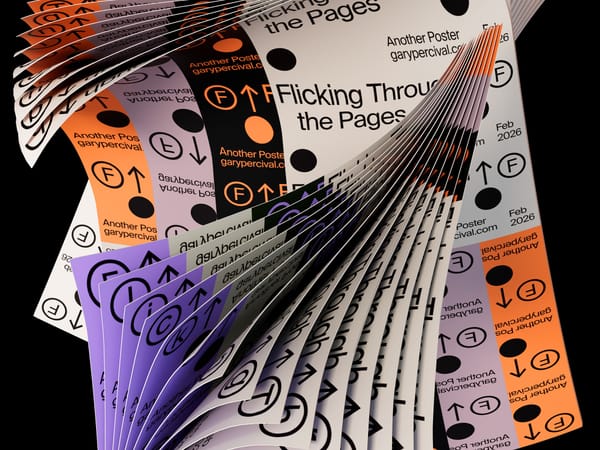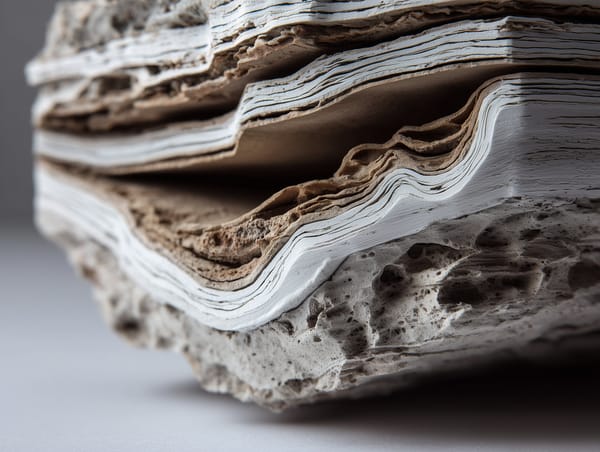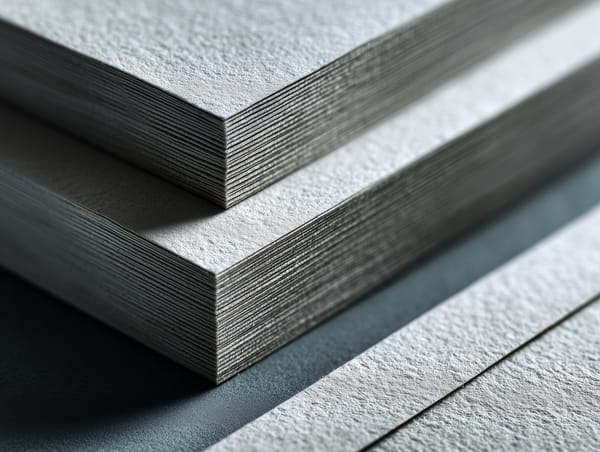The Effort in Simplicity: Why Life is Not as Easy as We Want It to Be
“Achieving simplicity is far from simple; it often requires more effort, thought, and skill than creating something complex.”

As freelancers, graphic designers, and creatives, we often strive for simplicity in our work and lives. We admire clean designs, streamlined processes, and effortless-looking outcomes.
But here's the paradox: achieving simplicity is far from simple. In fact, it often requires more effort, thought, and skill than creating something complex.
This principle doesn't just apply to our creative work—it extends to our careers, personal lives, and the very fabric of our existence as creative professionals.
The Illusion of Simplicity
All of us have seen a design so elegant and minimalist that it seems easy to make. Or perhaps we've watched a seasoned professional deftly navigate a complex task, leaving us to wonder why we struggle with similar challenges.
This is the powerful illusion of simplicity. It can cause frustration when our own attempts at simplification fall short, leading us to underestimate the effort behind remarkable achievements.
However, understanding the true nature of simplicity—and the work it entails—can transform our approach to both our professional and personal lives.
The Effort Behind Simplicity in Design
Let's start with what we know best: design. In our field, simplicity is often held up as the pinnacle of good design. Think of iconic logos like Apple's or Nike's swoosh. They appear incredibly simple, yet they're the result of countless hours of conceptualisation, refinement, and testing.
Creating a simple design requires:
- Deep Understanding: To distil something to its essence, you must first thoroughly understand it. This means research, analysis, and often extensive experimentation.
- Ruthless Editing: Simplicity is often achieved not by adding, but by taking away. This process of elimination can be painful and time-consuming.
- Precision: When you have fewer elements, each one must be perfect. There's no room for error in a minimalist design.
- Iteration: Simplicity rarely emerges fully formed. It's the result of multiple rounds of refinement and improvement.
- Restraint: It's often tempting to add "just one more thing." True simplicity requires the discipline to resist this urge.
Consider the famous quote often attributed to Mark Twain: "I didn't have time to write a short letter, so I wrote a long one instead." This principle applies equally to design. Creating something simple often takes more time and effort than creating something complex.
The Challenge of Simplicity in Freelancing and Business
The idea that "simplicity requires effort" extends beyond our creative output to how we run our freelance businesses or design careers. We often dream of a simple, smooth-running business, but achieving this is far from easy.
Here are some areas where the pursuit of simplicity can be deceptively challenging:
Time Management
The idea seems simple: manage your time effectively to be productive. Yet, implementing a truly effective time management system requires:
- Self-analysis to understand your work patterns
- Trying out different techniques and tools
- Consistently applying your chosen methods
- Regular review and adjustment of your system
Client Communication
Clear, concise communication with clients is crucial, but it's rarely simple. It involves:
- Developing a deep understanding of the client's needs
- Crafting messages that are both informative and easy to understand
- Creating systems for regular updates and feedback
- Managing expectations and potential conflicts
Pricing and Finances
A simple, transparent pricing structure might seem ideal, but creating one that's both fair to you and attractive to clients can be complex. It requires:
- Market research
- Understanding your own costs and value
- Creating clear terms and conditions
- Regular review and adjustment based on experience
The Complexity of a "Simple" Creative Life
Even beyond our work, the idea of living a simple, creatively fulfilling life can be more challenging than it appears. Here's why:
Finding Your Niche
The advice to "specialise and find your niche" sounds straightforward, but it's a journey that often involves:
- Extensive self-reflection
- Trying out different specialities
- Building expertise in your chosen area
- Potentially turning down work that doesn't fit
Work-Life Balance
Achieving a healthy work-life balance is a common goal, but it's rarely simple. It requires:
- Setting clear boundaries
- Learning to say no
- Managing client expectations
- Constantly adjusting as life circumstances change
Continuous Learning
Staying up-to-date in our creative fields seems like a simple necessity, but it's an ongoing challenge that involves:
- Regularly researching new trends and technologies
- Investing time and often money in courses or resources
- Applying new knowledge to real-world projects
- Balancing learning with productive work time
Why Simplicity is Worth the Effort
Given all this complexity behind simplicity, you might wonder: Why bother? Why not embrace complexity and save ourselves the effort?
The answer lies in the power of simplicity:
- Clarity: Simple designs, processes, and lifestyles are easier to understand and navigate. They reduce cognitive load and stress.
- Efficiency: Once achieved, simplicity often leads to more efficient work and living.
- Focus: Simplicity helps us concentrate on what truly matters, both in our work and our lives.
- Adaptability: Simple systems are often more flexible and easier to adjust when circumstances change.
- Impact: In design and communication, simple messages often have the most powerful impact.
"Simple designs, processes, and lifestyles are easier to understand and navigate. They reduce cognitive load and stress."
Embracing the Journey Towards Simplicity
Understanding that simplicity requires effort doesn't mean we should abandon the pursuit. Instead, we can approach it with more realistic expectations and greater patience. Here's how:
- Value the Process: Recognise that the journey towards simplicity is valuable in itself. The effort you put in will teach you about your work, your clients, and yourself.
- Start Small: Don't try to simplify everything at once. Choose one area of your work or life and focus on simplifying it.
- Embrace Iteration: Accept that your first attempt at simplicity might not be perfect. Be prepared to refine and adjust over time.
- Learn from Others: Study how other successful creatives have simplified their work and lives. But remember, what works for them might need adaptation for you.
- Be Patient with Yourself: Remember that achieving simplicity is a skill like any other. It takes time and practice to master.
- Celebrate Small Wins: Acknowledge every step towards simplicity, no matter how small. These victories will motivate you to continue.
The Paradox of Effortful Simplicity
As we navigate our creative careers, it's crucial to remember the paradox at the heart of simplicity: it often requires more effort, not less. This understanding can be liberating.
It means that when we struggle to simplify, we're not failing—we're engaging in the necessary work of distillation and refinement.
Moreover, recognising the effort behind simplicity can help us appreciate it more—both in our own work and in others.
When we see a beautifully simple design or a seamlessly run business, we can acknowledge the hard work and skill that went into making it appear effortless.
Conclusion: Embracing the Complexity of Simplicity
Life as a creative professional is not as easy as we sometimes wish it could be. The pursuit of simplicity—in our designs, our businesses, and our lives—is a complex and ongoing process. But it's precisely this challenge that makes our work meaningful and rewarding.
"By embracing the effort required for simplicity, we open ourselves up to growth, improvement, and ultimately greater satisfaction in our work and lives."
We learn to value the journey as much as the destination, finding joy in the process of refinement and distillation.
So the next time you find yourself struggling to simplify a design, streamline a process, or declutter your creative life, remember: that you're not doing it wrong. You're doing the necessary work of creating something truly valuable.
Keep pushing, keep refining, and know that every step of the journey is bringing you closer to the elegant simplicity you seek.
In the end, perhaps the greatest simplicity we can achieve is the acceptance that life and work will always involve complexity—and that navigating this complexity is what makes us better designers, better professionals, and better human beings.



